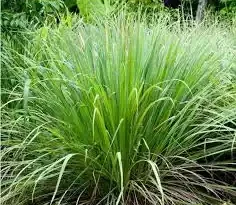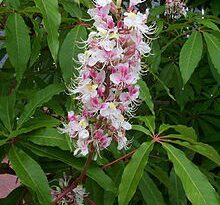16 Medicinal Health Benefits Of Salvia (Sage)
Salvia, commonly known as Sage, is a diverse and widely cultivated genus of plants that includes a wide variety of herbs, shrubs, and ornamentals. These plants are appreciated for their aromatic leaves, vibrant flowers, and culinary, medicinal, and ornamental uses.
One of the most famous members of this genus is Salvia officinalis, or Common Sage. This herb is renowned for its aromatic gray-green leaves, which are used as a culinary seasoning in various dishes, particularly in Mediterranean cuisine.
Sage imparts a distinctive flavor and fragrance to recipes and is often found in stuffings, stews, and roasted meats.
Sage is also valued for its medicinal properties, with its leaves used in traditional herbal remedies for their potential health benefits. It is known for its anti-inflammatory, antioxidant, and antimicrobial properties, making it a versatile herbal remedy.
Beyond its culinary and medicinal uses, Salvia species offer a wide array of ornamental options. Many varieties of Sage produce colorful and attractive flowers in shades of blue, purple, pink, or red, making them popular choices for gardens and landscapes.
The aromatic foliage and pollinator-attracting blooms contribute to their appeal.
Salvia, with its multifaceted uses in cooking, natural medicine, and horticulture, holds a special place in the hearts of gardeners, chefs, and herbal enthusiasts alike.
The Botanical Description of Salvia
1. Life: Salvia, commonly known as sage, is a genus of aromatic plants that are typically perennial. These plants have a longer lifespan compared to annual plants, as they continue to grow and produce foliage for multiple years.
2. Leaves: Sage plants are characterized by their distinct leaves, which are typically oblong or lance-shaped. They are often grayish-green or silver-gray in color, with a fuzzy texture. The leaves contain essential oils that give them their characteristic aroma.
3. Flowers: Salvia plants produce tubular-shaped flowers that are often brightly colored, such as shades of blue, purple, pink, or red. The flowers are arranged in clusters or spikes and are attractive to pollinators like bees and butterflies.
4. Size: The size of sage plants can vary depending on the specific species and growing conditions. They can range from small, compact herbs to larger shrubs.
5. Growth Habit: Sage plants typically have a bushy growth habit, with multiple stems arising from a central base. They can grow up to a meter in height, although some species are more compact.
6. Aroma: One of the most notable characteristics of sage is its strong and pleasant aroma. When the leaves are crushed or rubbed, they release a fragrant scent that is often used in culinary and medicinal applications.
The Geographic Distribution of Salvia
1. Native Range: Salvia is a diverse genus with a wide distribution. It is native to various regions around the world, including parts of Europe, Asia, North and South America, and Africa. The specific native range of each species varies.
2. Habitat: Sage plants can thrive in a range of habitats, from open grasslands to rocky slopes and woodland areas. They are known for their adaptability to different environmental conditions.
3. Global Cultivation: Due to the popularity of sage for culinary and ornamental purposes, it is cultivated in many countries, even outside its native range. It is a common herb in home gardens and is also grown on a larger scale for commercial use.
4. Adaptation: Sage has adapted to a variety of climates, from arid deserts to temperate regions. It is often found in areas with well-drained soil and plenty of sunlight.
5. Ecological Significance: Sage plants play a role in local ecosystems by providing nectar for pollinators and serving as food for herbivores.
The Chemical Composition of Salvia
1. Essential Oils: Sage leaves contain essential oils, including compounds like thujone, cineole, and camphor. These oils are responsible for the plant’s distinctive aroma and are used in herbal remedies and aromatherapy.
2. Flavonoids: Salvia species are rich in flavonoids, which are natural antioxidants that have various health benefits. These compounds contribute to the plant’s medicinal properties.
3. Rosmarinic Acid: Sage is known for its high content of rosmarinic acid, which has anti-inflammatory and antioxidant properties. It is often used in traditional medicine.
4. Tannins: Tannins are a group of polyphenolic compounds found in sage that have astringent properties and are beneficial for skin health and wound care.
5. Vitamins and Minerals: Sage contains essential vitamins and minerals, including vitamin K, vitamin A, calcium, and iron. These nutrients contribute to its nutritional value.
6. Medicinal Compounds: Sage has been used in traditional medicine for its potential health benefits. It contains compounds that may help with conditions such as digestive issues, sore throat, and inflammation.
7. Culinary Uses: Sage is a popular culinary herb known for its flavor. It contains compounds that contribute to its savory taste and aroma, making it a valuable ingredient in cooking.
Salvia, or sage, is a diverse genus of aromatic plants known for its distinctive leaves, colorful flowers, and pleasant aroma. It has a wide geographic distribution, with native species in various parts of the world. Sage is not only valued for its culinary uses but also for its medicinal and aromatic properties.
The chemical composition of sage includes essential oils, flavonoids, rosmarinic acid, and other compounds that contribute to its health benefits.
Read Also: Mealybug: The Silent Garden Threat – How to Defend Your Plants
The Medicinal Health Benefits Of Salvia (Sage)

1. Digestive Health: Sage has been used to alleviate digestive issues, including indigestion and bloating. It can help promote healthy digestion.
2. Anti-Inflammatory Effects: Salvia contains compounds that have anti-inflammatory properties, making it beneficial for conditions involving inflammation.
3. Antioxidant Support: Sage is rich in antioxidants, which protect cells from oxidative damage and contribute to overall health.
4. Cognitive Function: Some research suggests that sage may support cognitive function and memory, potentially offering benefits for conditions like Alzheimer’s disease.
5. Sore Throat Relief: Sage has traditionally been used to soothe sore throats and alleviate symptoms of respiratory infections.
6. Menopausal Symptoms: Salvia supplements are used by some women to reduce the frequency and severity of hot flashes and other menopausal symptoms.
7. Dental Health: The antimicrobial properties of sage make it effective for maintaining oral health and preventing dental issues.
8. Skin Health: Sage can be applied topically to the skin to address various skin conditions, thanks to its antiseptic and astringent properties.
9. Immune System Support: Sage may help strengthen the immune system, making it more resilient against infections.
10. Respiratory Health: Sage can ease respiratory conditions, such as coughs and bronchitis, due to its anti-inflammatory and antimicrobial effects.
11. Anti-Anxiety: Some individuals use sage for its potential to reduce anxiety and promote relaxation.
12. Cardiovascular Health: Sage may contribute to cardiovascular health by improving circulation and reducing the risk of blood clots.
13. Weight Management: Compounds in sage may help regulate appetite and promote weight loss.
14. Anti-Bacterial Properties: Sage has demonstrated antibacterial effects, which can help combat harmful bacteria in the body.
15. Anti-Fungal Effects: It can be used to address fungal infections, both internally and externally.
16. Hair Health: Sage can be beneficial for hair health, promoting hair growth and reducing dandruff.
The Methods of Usage to Achieve the Provided Health Benefits Of Salvia (Sage)
1. Herbal Teas: Sage leaves can be used to prepare herbal teas. Drinking sage tea is a common method to enjoy its health benefits, particularly for digestive and respiratory health.
2. Aromatherapy: Sage essential oil can be used in aromatherapy to reduce anxiety and stress. It can be inhaled or applied topically (diluted) for relaxation.
3. Culinary Uses: Sage is a popular culinary herb used to flavor various dishes, including poultry and stuffing. Consuming sage in your meals can provide its health benefits.
4. Tinctures and Supplements: Sage supplements are available in various forms, such as tinctures, capsules, and extracts. These can be convenient for those seeking specific health benefits.
5. Topical Applications: Sage can be applied topically to the skin for conditions like acne, dermatitis, or wound care. Its astringent and antiseptic properties are valuable in skincare.
6. Mouthwash: Sage-infused mouthwash can promote oral health, combat bad breath, and prevent dental issues.
7. Hair Rinses: Preparations made from sage can be used as hair rinses to promote hair growth and reduce dandruff.
The Side Effects Of Using Salvia Medicinal Plant
1. Allergic Reactions: Some individuals may be allergic to sage, leading to skin rashes, itching, or respiratory discomfort. If you experience allergies, discontinue use.
2. Dosage Consideration: Adhere to recommended dosages when using sage for medicinal purposes. Excessive consumption may lead to adverse effects.
3. Interaction with Medications: Sage may interact with certain medications, especially those related to blood clotting and diabetes. Consult with a healthcare provider if you are on medication.
4. Avoid During Pregnancy: Pregnant individuals should avoid using sage due to potential risks of uterine contractions.
5. Not for Children: Sage should not be given to children with fever or viral infections, as it may lead to Reye’s syndrome, a rare but serious condition.
6. Gastric Upset: In some cases, the use of sage may lead to stomach upset, including nausea and indigestion. Use it with caution.
Salvia, commonly known as sage, is a versatile medicinal plant with a wide range of health benefits. It has been used for centuries to address various health concerns, from digestive issues and respiratory conditions to cognitive function and skin health.
Read Also: 17 Medicinal Health Benefits of Roselle Plant (Hibiscus sabdariffa)
The Scientific Research and Studies of Salvia (Sage)

1. Cognitive Function: Scientific research has explored the potential of sage to improve cognitive function and memory. Studies suggest that certain compounds in sage may have a positive impact on cognitive performance, making it a subject of interest for conditions like Alzheimer’s disease.
2. Antioxidant Properties: Numerous studies have investigated the antioxidant properties of sage. These properties are attributed to the presence of various compounds in sage, which can help protect cells from oxidative damage.
3. Anti-Inflammatory Effects: Research has shown that sage contains compounds with anti-inflammatory effects. These compounds have the potential to reduce inflammation in the body, contributing to overall health.
4. Antimicrobial Activity: Sage has been studied for its antimicrobial properties. It has shown effectiveness against various microorganisms, making it a valuable tool for maintaining oral health and addressing infections.
5. Menopausal Symptoms: Some studies have examined the use of sage supplements to reduce menopausal symptoms, particularly hot flashes. While results are promising, more research is needed.
6. Gastrointestinal Health: Sage has been investigated for its role in promoting gastrointestinal health, including its ability to alleviate indigestion and bloating.
7. Respiratory Conditions: Research suggests that sage may help alleviate respiratory conditions such as coughs and bronchitis due to its anti-inflammatory and antimicrobial effects.
8. Skin Health: Scientific studies have explored the potential benefits of sage for skin health. Sage’s antiseptic and astringent properties make it a valuable option for skincare.
9. Dental Applications: Research has demonstrated that sage can be used in dental applications, such as mouthwashes, to maintain oral health and prevent dental issues.
10. Weight Management: Some studies have examined the effects of sage on appetite regulation and weight management, indicating its potential role in these areas.
The Safety Precautions and Recommendations In Using Salvia (Sage) Medicinal Plant
1. Allergic Reactions: Be aware of potential allergies to sage. Some individuals may experience allergic reactions when using sage, resulting in skin rashes, itching, or respiratory discomfort. If you are new to sage, perform a patch test before using it extensively.
2. Dosage Control: Ensure that you follow recommended dosages when using sage for medicinal purposes. Excessive consumption may lead to adverse effects.
3. Medication Interactions: Sage may interact with certain medications, especially those related to blood clotting and diabetes. If you are on medication, consult with a healthcare provider before incorporating sage into your routine.
4. Pregnancy Precautions: Pregnant individuals should avoid using sage due to the potential risks of uterine contractions. It is not recommended during pregnancy.
5. Avoid in Children: Sage should not be given to children with fever or viral infections, as it may increase the risk of Reye’s syndrome, a rare but serious condition.
6. Gastric Upset: In some cases, the use of sage may lead to stomach upset, including symptoms like nausea and indigestion. Use it with caution.
FAQs About Salvia (Sage) Medicinal Plant
1. Is sage safe for pregnant individuals?
Sage is not recommended during pregnancy, as it may lead to uterine contractions.
2. Can sage be used by children?
Sage should not be given to children with fever or viral infections, as it may increase the risk of Reye’s syndrome.
3. What are the potential benefits of sage for cognitive function?
Sage has been studied for its potential to improve cognitive function and memory, which is of interest for conditions like Alzheimer’s disease.
4. How can sage be used for respiratory conditions?
Sage’s anti-inflammatory and antimicrobial effects make it suitable for alleviating respiratory conditions such as coughs and bronchitis.
5. Are there any side effects of using sage?
Some individuals may experience allergic reactions or gastric upset when using sage. It’s essential to use it with caution and adhere to recommended dosages.
6. Can sage be used for skincare?
Yes, sage’s antiseptic and astringent properties make it beneficial for skincare, addressing issues like acne and dermatitis.
7. What is the best way to use sage for oral health?
Sage can be used in mouthwashes to maintain oral health, combat bad breath, and prevent dental issues.
8. How does sage affect weight management?
Some studies suggest that sage may play a role in regulating appetite and promoting weight management.
9. Is there an age restriction for using sage?
While there is no specific age restriction, caution should be exercised when using sage, especially in children and pregnant individuals.
10. Can sage be used for cooking?
Yes, sage is a popular culinary herb used to flavor various dishes, particularly poultry and stuffing.
Sage, or Salvia, has been the subject of scientific research and studies that have explored its potential health benefits, including its effects on cognitive function, antioxidant and anti-inflammatory properties, and its applications in oral health and skincare.
While sage offers numerous health benefits, it is essential to exercise safety precautions and adhere to recommended dosages. Sage is not recommended for pregnant individuals, children with fever or viral infections, and those on specific medications.
Read Also: Everything You Need to Know About Extinction of Animals








